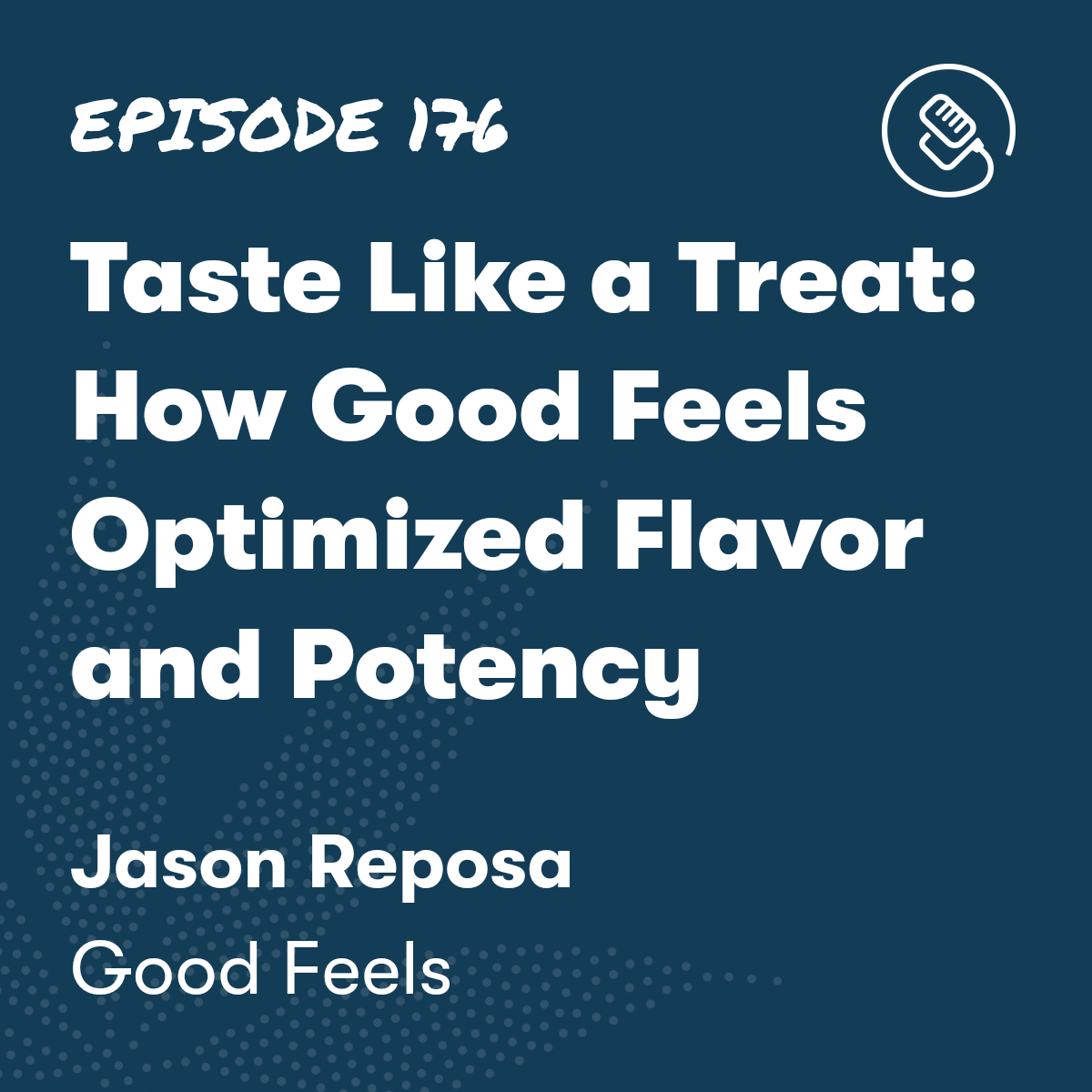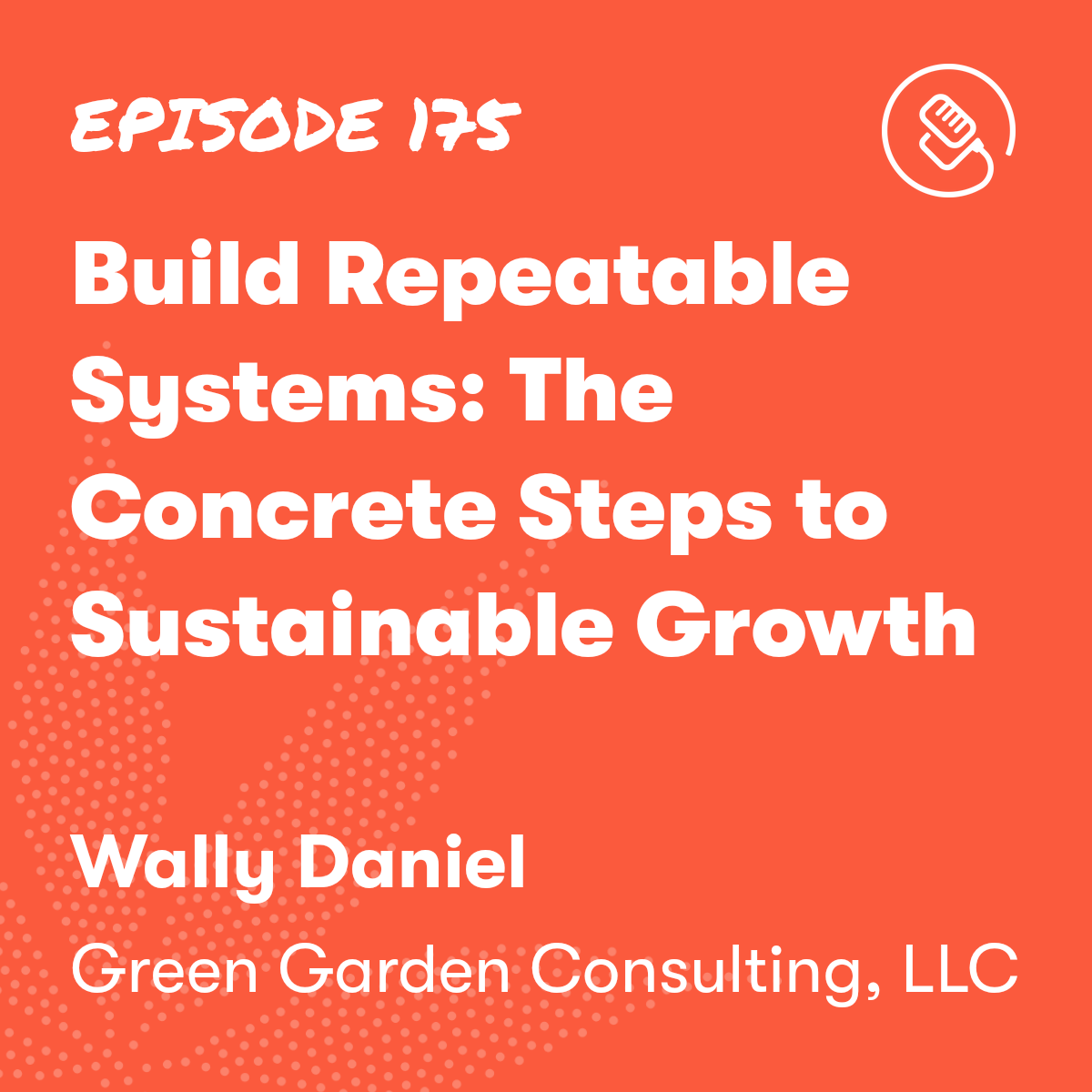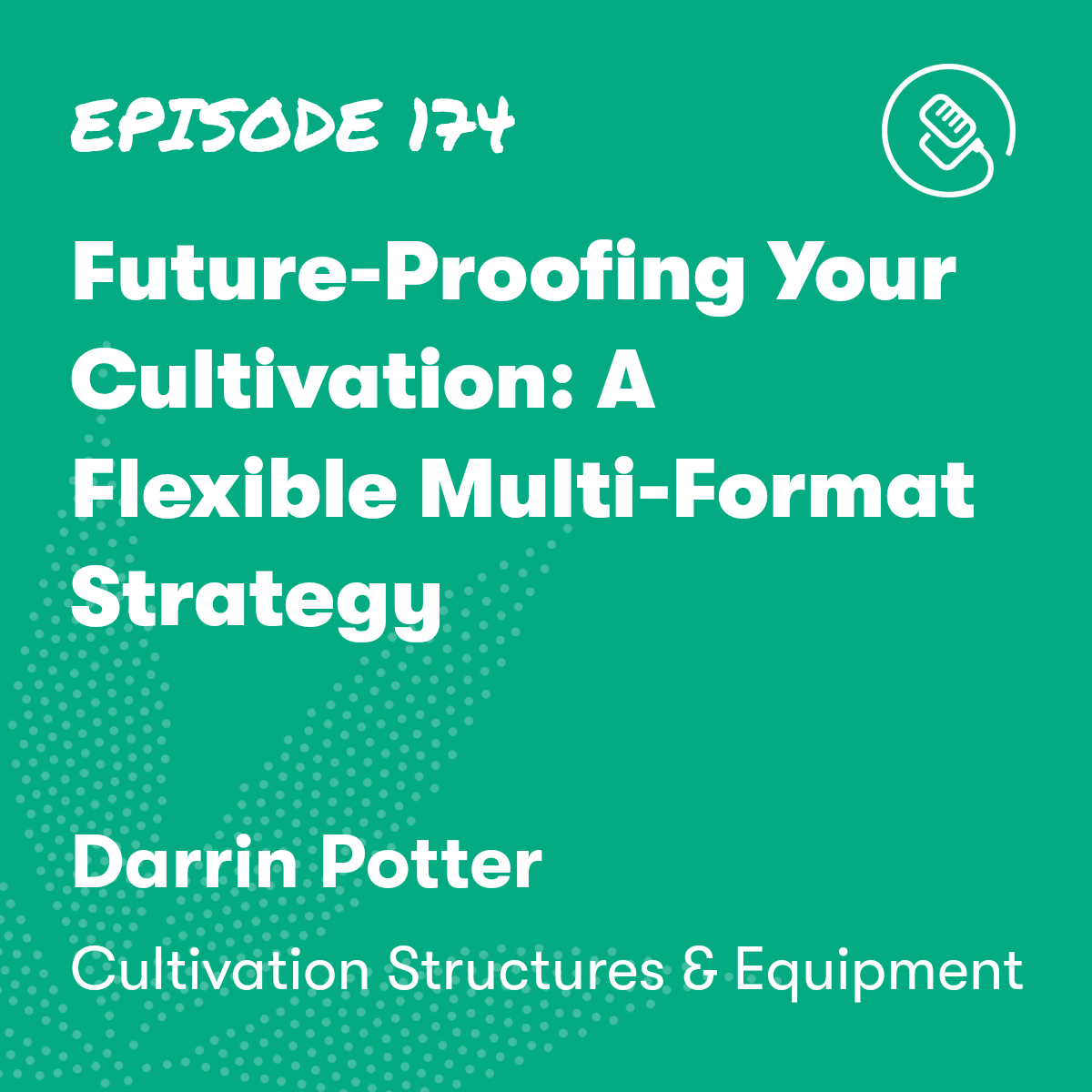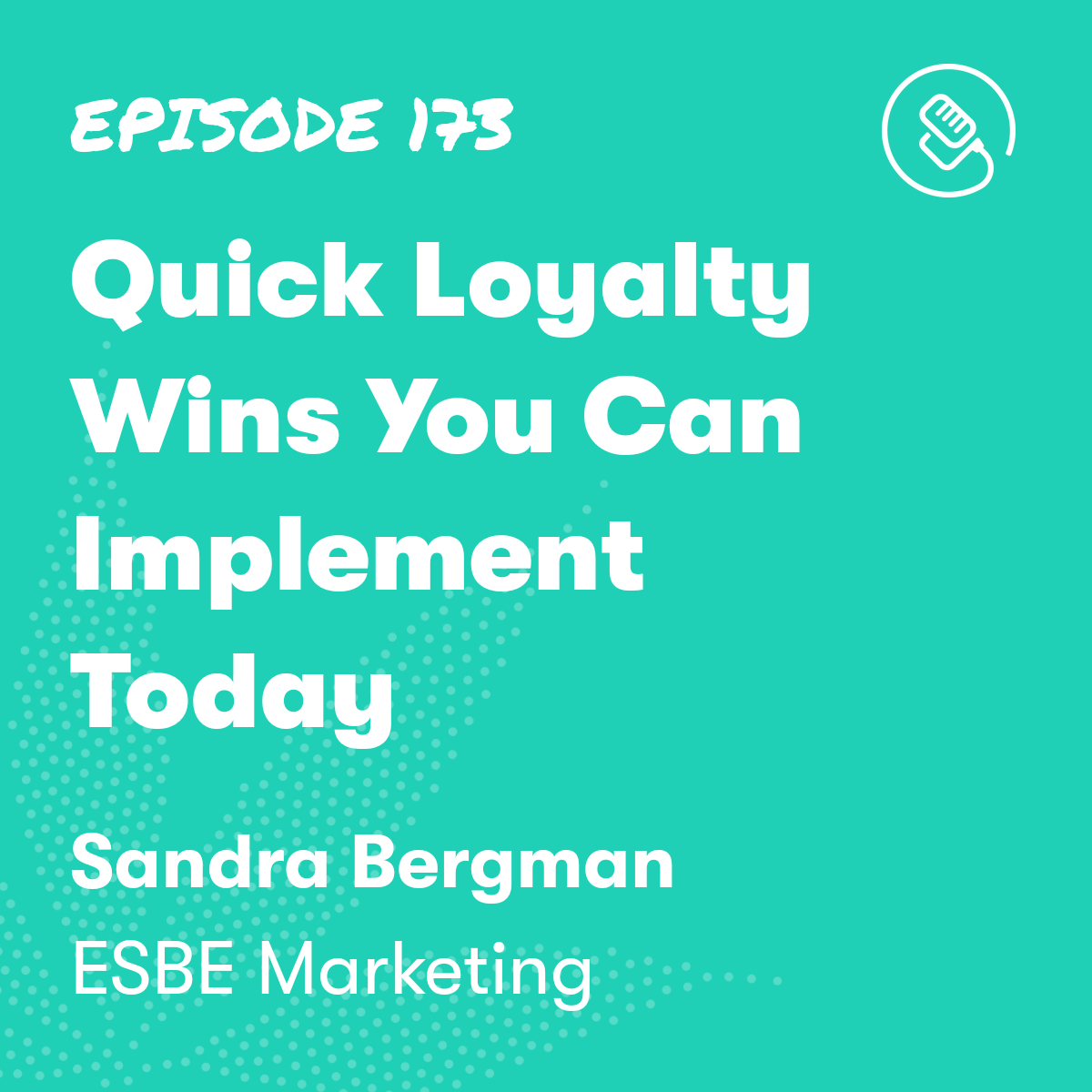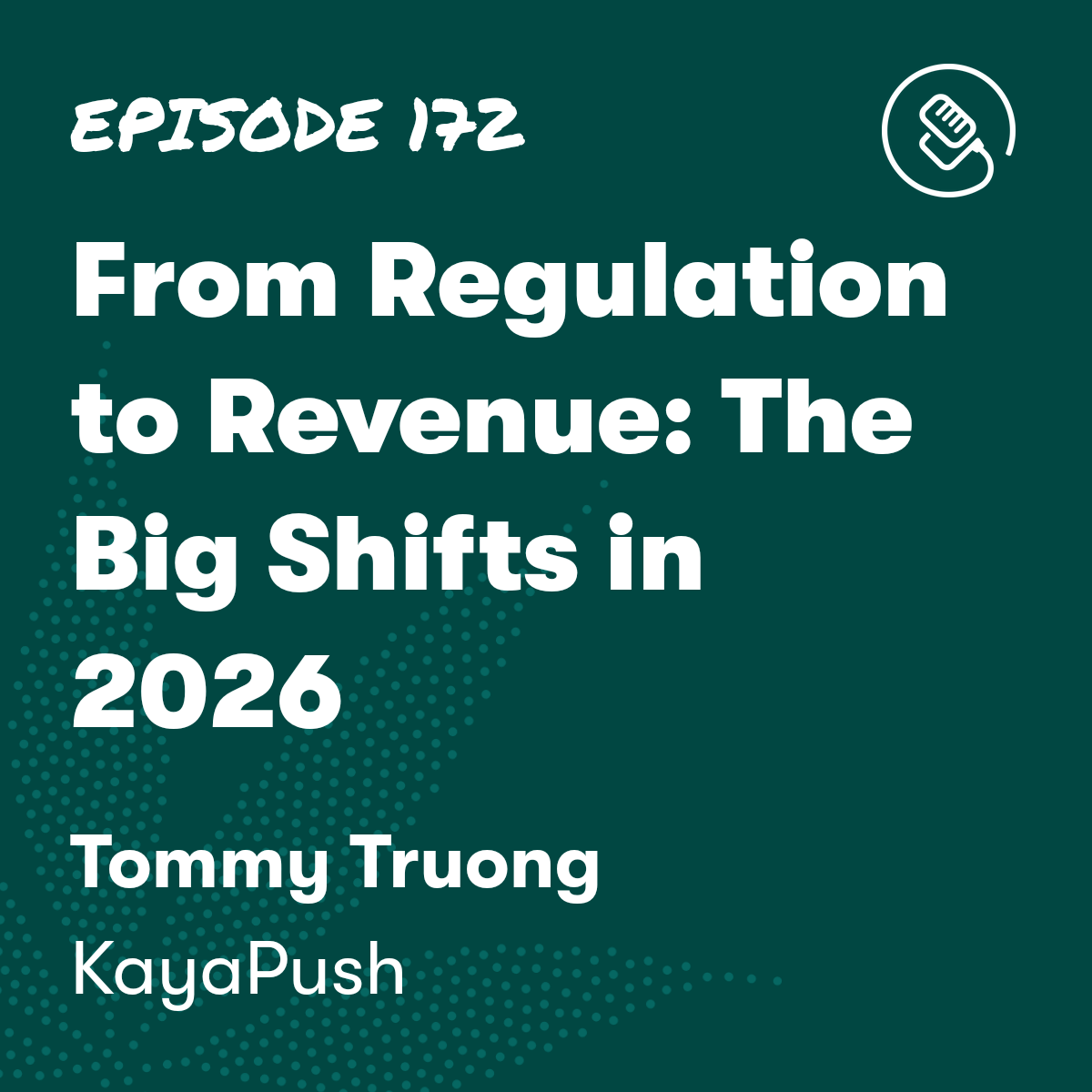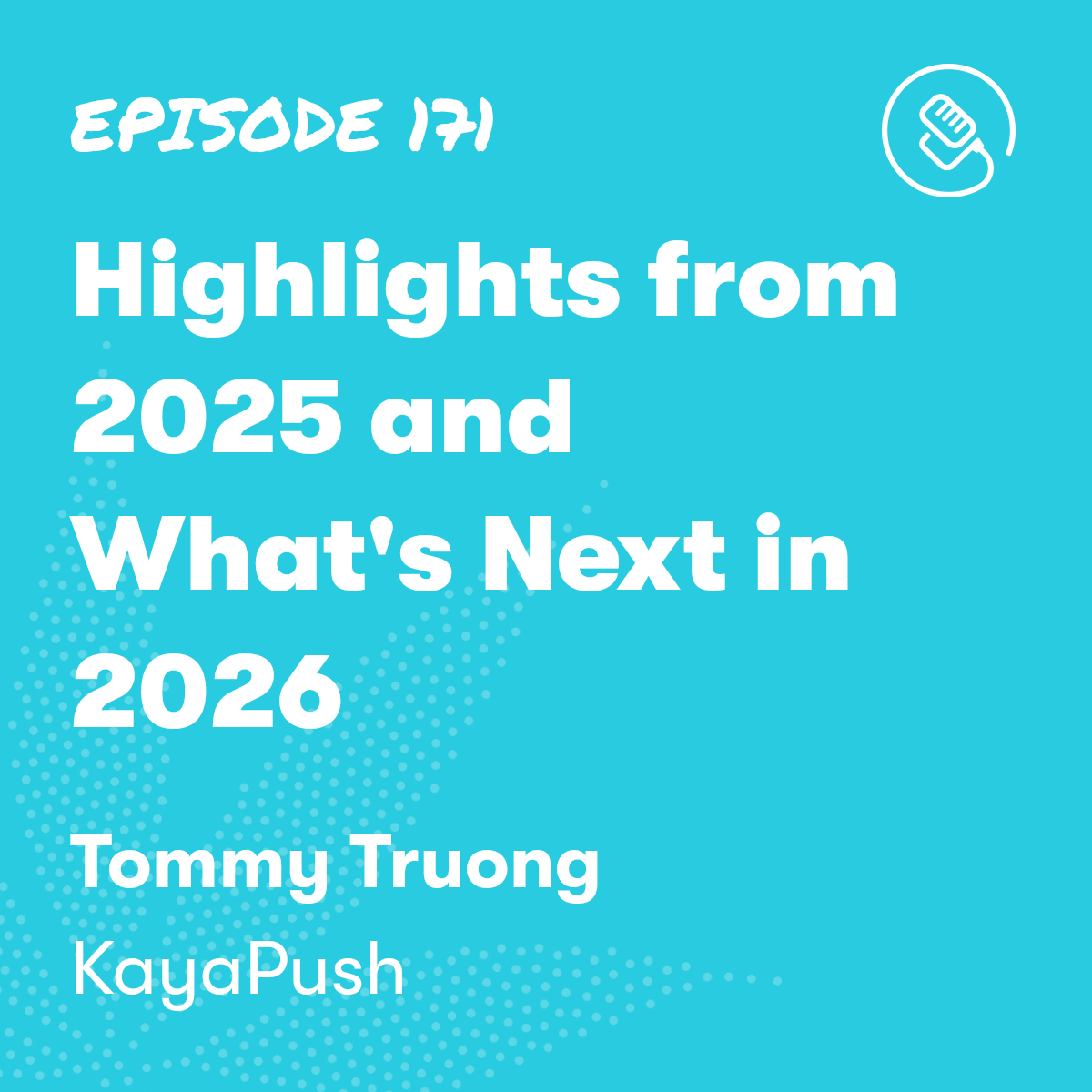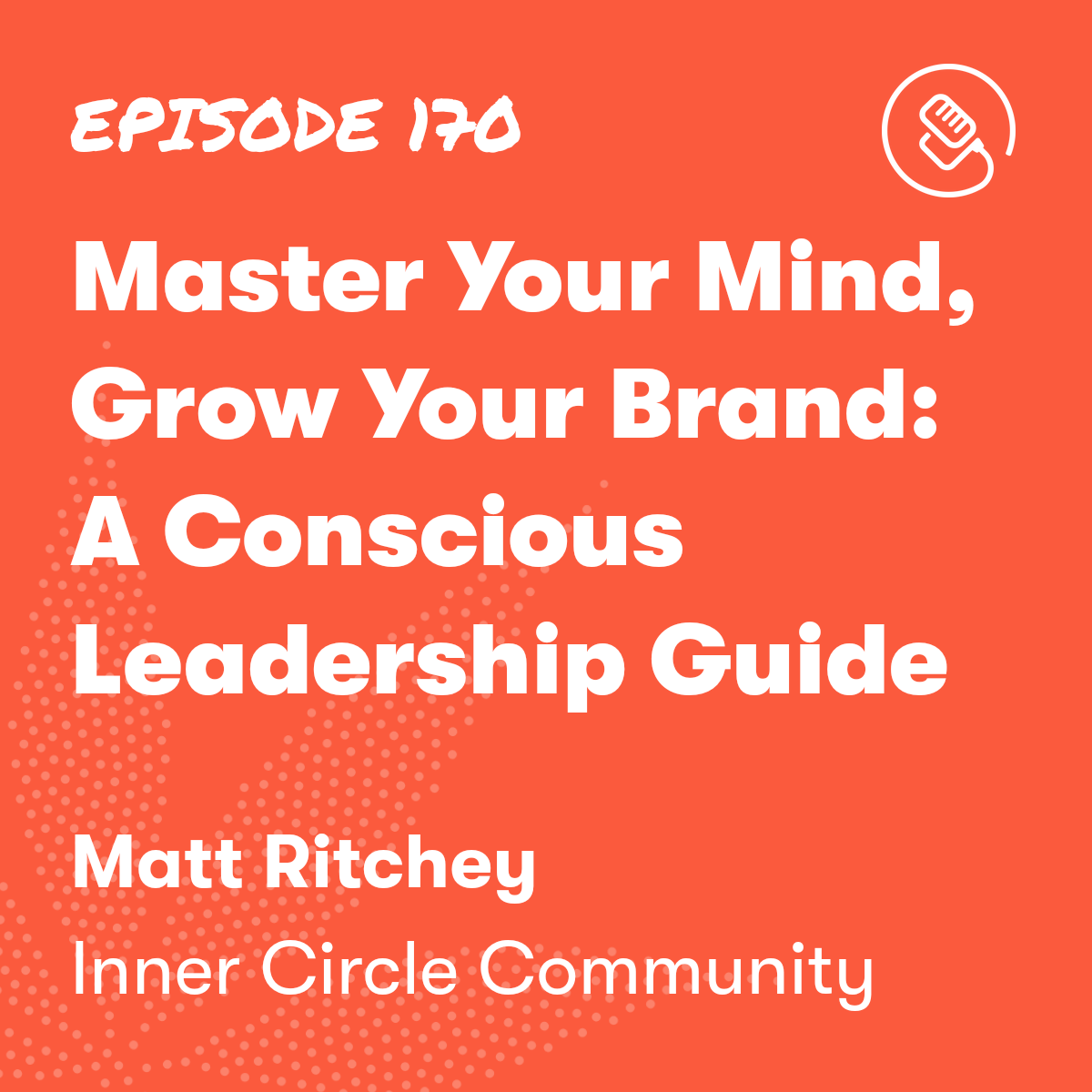

How to Successfully Launch and Grow a Dispensary [LIVE]
Episode Description

Episode Transcript
Tom Mulhern: Welcome to the show. I'm so excited to share our show today because we have some highlights from our recent events in Portland, Maine and Albuquerque New Mexico. I'm currently standing down by the ocean here in Portland, right where they pulled the two lobsters I had for dinner last night out of the ocean. And we had a fantastic time getting to know some business owners in the cannabis industry. Here in Maine, as well as in New Mexico, we had fantastic conversations, fantastic food, and really, it was great to connect with everyone who came out.
We ha had some great speakers, some of our partners. And we're gonna be sharing some of the things that really impacted the people that came out. And I know that. Was just blown away by the level of community and really the level of depth that our speakers went into.
Gary Cohen is the CEO and founder of Cova. Cova is a point of sales system that integrates with all of your technology stack in your cannabis business, including Kaya Push. Gary has a wide breadth of experience in business and technology and Gary gave some really great advice for business owners on how to run a successful business, but more than. What can make your dispensary or retail operation stand out from the crowd?
Gary Cohen: One of the things Covas done since we started was a pay it forward, provide a lot of information, provide a lot of education cuz it's a new industry and our whole business is based on new markets. So we do really well helping new dispensary owners in new markets.
If we look at the location you're in, whether you're in this city or that town or this village, or what part of town are you in?
What's the demographics who's there? If you build the Taj Maha of dispensaries, in the poorest part of the country or the state. There's a disconnect there. There's spent all this money on fixtures and signage and marble floor. They gotta be overcharging me. Like it makes no sense. And it's amazing how many times people don't connect the dots about who's my customer, the market.
How am I gonna build for that market? Location puts things into context.
The majority of people have never been in a dispensary, so they don't know what's behind those doors.
They don't know if it's much of stoner dudes on a couch. They don't know how sketchy it is. They, they just don't know. And then they go in, there they go, oh, this isn't so bad or it's not so scary.
There's different ways to consume it. Flower, concentrate, edibles drinks, tinctures.
The first dispensary I went to in Vancouver, where I was with two other people that work at Cova and I'd never been in dispensary and we had three bud tenders.
There's a woman, who's our head of marketing. There's another woman who is the head of our partner staff, and three bud tenders. And they all ask the same question. What are you looking for in the first woman doesn't consume at all?
So she has the blank look on her face. I'm just here with them. They look at me and all I can think in my head is I don't wanna sound. Like Beavis and Butthead, and go I just want something that gets me stoned. I don't want to be that guy, but I don't know what I'm supposed to say.
I don't know what, I don't know. What you're looking for. Pot is pot, and then he looks at the third person. She goes I want something that opens my creativity. Doesn't get me tired. I like more Citric undertones. She names like 20 attributes. And we're both looking there. Like, how does anyone even know this?
Like where does that come from? We don't know anything about what to do, what to ask for how it works, and I only had two questions in 50 years of buying pot. Do you have any, how much is it? . I didn't know. I don't care who grew it, where they grew up.
It doesn't matter to me. So anyhow, this whole world of what's our brand, what's our store. What does our store stand for? And people do it. They build their brand around what are we trying to represent?
Who are your customers again? It won't be just stoner dudes. This product, both from the medical, now from the rec side, it's a whole group of people.
So let's combine all this stuff. We've got location, brand, customers. So how do we mash this together? My bad news is it doesn't matter unless you execute on it. So it's back to the, if nobody owns the standard operating procedure, or if we have a concept of, this is what we're gonna try to deliver, but I don't educate my employees on it. This is what we're about. And I don't think through that customer experience or the customer journey.
And then I think that, one of the things we do with all of our new clients is we help 'em scope out how do you want that experience to look? So do you wanna be behind a counter? A counter is a wall, so I'm on my side of the wall. You stay on your side of the wall. Or do you want your people out with you walking around? We've got stuff over here. Let's go look at that. So there's different ways to set up your store.
So these are the four levers of marketing. You've got product. So you can adapt different products to your store. Place is your location so we can modify our location. You know where it is and then what it is. Promotion is how do we want to advertise products. And then lastly is price. That's your, your last lever.
It seems so logical that the more information you have, the better decisions you can make. So when it comes to inventory how many purchasing experts in cannabis are there for you to hire? There's not that many.
All that combination is a, a rare commodity in a state that's new to cannabis, you know, in Colorado or Michigan. Yeah. There's a ton of those guys and a ton might be 200 or 300 that really know how to do buying. This is just purchasing, understand what's selling and understand how fast it's selling.
If the service is bad, you're gonna be hard pressed to have some product that is so unique no one else has it. And that I gotta go back for the red mango. He's the only guy that's got red mango. So selection versus curation. We only do premium quality. Like our staff is we go out of our way to buy the best quality of whatever the category is. Or you could be, we have a good, better, best, so you could spend $10, $13, $17.
And it's all red mango, but got three different growers. Take your choice merchandising.
You are a retail store. So how you arrange things, how it looks, how clean it is, how visible things are matters. There are expectations that once I get past what's behind those doors in of a dispensary does it look like a store, smell like a store?
Feel like a store should be organized, like a store and then access and access blows me away in that we have regulations state by state that you can't touch anything before you buy it. You've got other states where you can have smell jars. I could smell whatever the flower is, pick it up.
I could look at it. You got other places that have magnifying glasses. I can look at the, look at the color and the hairs and all the stuff on it. How close can they get? How do they pick it up? How can they interact?
I went in this dispensary in San Diego and all the products were on shelves, like a drug store. I was like, is this a, a joke? Like, I can go get anything I want and pick it up, touch it, put it in my pocket. You know, You're not supposed to. It's all there. It was all out and never seen that. And I thought something must be wrong or these are all empty boxes.
But they had put a sensor on every single package and that was their thing. You could interact with everything in the store. And I was dying to go back there cuz never seen anything like it. So that's access.
So place obviously in real estate, you want location, you want traffic count. You want as much visibility as you can get. I want as much signage as I can get. You want as much as you can possibly negotiate.
Promotion. Some of you guys are gonna be the first dispensary in your town and there might not be another one for 15 miles. If that's the case, you don't need to do promotion in the sense of, discounting taking money off the table. The more and more competition you have, the more clever or creative you might wanna be to pull people from another possible place to shop.
And then lastly, price. Price is the last lever you wanna pull. because any dollar you discount is a dollar outta your pocket, what do they say? If you live by price, you die by price.
If I can tie all this together, you need to really think through that brand.
So when I talked about location, the brand. In the customers and pull it all together. What am I gonna deliver? And it does take work. It takes executional work to hire people, educate 'em on. This is what we're gonna do. This is what we're about. You can put metrics to it or KPIs, but if you don't have a vision of what you wanna deliver, Then they just come in the store and one time it's this.
And the next time they come in, the products can be different. The employees are turned over and they're different. They used to be nice. And now they're not nice. So you've gotta say, this is what we're gonna do and you gotta manage it and you gotta do it. That's my secret to success.
Tom Mulhern: Naomi is the founder of NACAT pros, a organization for cannabis tax accountants. And in her talk, she tackled a ton of huge issues, including 280-e , she dove deep into what cannabis retailers in New Mexico and across the nation really need to know so that they can have a successful business. So let's just hear what she has to.
Naomi Granger: My name is Naomi Grainger. I am a CPA and an MBA, and I've been working in the cannabis industry for about four years now. And I actually started the National Association of Cannabis Accounting and Tax Professionals. And it's a professional organization for accountants in the industry where I train and educate accountants to help them better understand this industry.
And as we go through this presentation, you'll understand. You wanna get a trained accountant? You can't just get any accountant who is working with your local restaurants and chiropractors, and then you want them to do the accounting for your dispensary because there's special rules and regulations.
There's things that they need to know. They need to really understand the industry to make sure that they are doing the accounting properly for your business. And if they're not doing the accounting properly for your business, You're the one who is going to have to deal with that. You'll have to pay more in taxes.
You may end up losing your license if they're not doing things compliant. So it's really important that you are getting a trained accountant.
And one of the things I like to say is when your numbers are right, your conversations are different. Your conversations with investors, your conversations with your bankers, your conversations with the regulators, with the taxings authorities. If you understand your numbers, then all those conversations should go well.
All right, so we're gonna get straight into it. And we're gonna talk about marijuana tax. How many of you guys are familiar with the tax code 280e? Tax code 280e says that if you are trafficking in schedule one controlled substance, which marijuana is still schedule one, you are not permitted to take any of your operating expenses.
So when you're looking at a regular business, you have revenue, you have cost of good sold, and then you have all these operating expenses. You have rent, you have payroll, you have marketing, you have all these other expenses. And then after all of those expenses, you have net profit and then you pay taxes on what's left the net, whatever that net profit is.
But with cannabis because of 280e. You have revenue, you have cost of goods sold and whatever is left after that, you pay taxes and then you pay rent, payroll, utilities, all that other stuff, all those operating expenses. So you're getting taxed on your gross profits rather than your net profit, which makes your tax bill a lot higher.
There is another code, which I didn't put up here, but it's called 471-C. So 471- 3 is for retail and it says you can only take the cost of the product. 471-11 is for producers. It says you can take a lot more expenses, but because of the tax code in jobs act that was passed back in 2017 by Donald Trump. There was a, there was another code that was introduced called 471-C, which says that you can determine a method of accounting for your business.
And that method of accounting can be, I allocate rent and all these different things in the cost of good sold, which the more you have in the cost of good sold, the less you're paying in taxes.
Now, a lot of accountants were conservative by nature, and I have a network of over a hundred accounting firms that work with cannabis companies. And we're probably split in half when it comes to tax professionals, some won't touch it and they won't give you that advice. And others say, Hey, let's do it. Let's let's try taking 471-C. That is a risk because there aren't any actual tax court cases.
Now we don't know what's legal until there's actually a tax court case that says, Hey, you can do this, but I have spoken to a couple of tax attorneys. Who have had they've had tax audits and it didn't go to court, but they allowed them to use 471-C. So we wouldn't know if it didn't go to court, unless we're talking to these attorneys and knowing what's going through.
So those are the two income state taxes, income taxes you have federal, and you have state. Now there's additional taxes and I haven't even written all of the taxes, but another very important tax is your excise tax. So the state's excise tax is 12% and this is through 2020. And then it's gonna increase 1% per year and max out at 18%.
And so that's something that you need to file on a monthly basis. And a lot of times, a lot of people, they talk about cannabis. They talk about 280e and the conversation stops there. They're like, how do I get past 280e? How do I do 280e is a federal thing. You do that once a year. However, Excise taxes due monthly.
And if you're not paying your excise tax, you're not gonna have a cannabis license pretty soon. And you don't have to worry about federal taxes at that point, cuz your business is gonna be shut down.
If you're not actually trafficking because you're a startup, then you can deduct those expenses before you actually become operational. So that's something that you'll need to have a tax CPA, help you understand and do the proper accounting to make sure you're getting those written off.
And now we're gonna talk a little bit about cash and inventory controls, cash and inventory are the most valuable assets in your business. Inventory is the most valuable one. So it's important that you have an accountant who's in place who understands inventory controls. There's a couple of things that you need to think about inventory strategy.
You, you can't be profitable if you don't have a good inventory strategy in place. So you need to analyze your purchases. You should be looking at KPIs like the average ticket price, the units per transaction. So how many units is each customer buying per transaction inventory intake. So when that inventory comes in and I know Cova has a solution to help ensure that all this stuff matches, but you wanna ensure that what's going into your POS system matches what's in BioTrack and what's on that invoice.
And it's actual and there's a count and it's actually the product that you're receiving. There needs to be checks and balances and segregation of duties because that's been the biggest nightmare on most of my clients.
They've fat fingered it, or they put in grams. When it should have been each or they put in ounces when it should have been grams. And so then it, they, you go to the website, as we mentioned earlier, and you're trying to buy it and it's completely out because they've put in the wrong units of measure so that they think that they have more than what they have.
And there's not a lot of guardrails around Metrc and a lot of these systems to make sure that you're not messing that up. So you've gotta be really careful with.
Inventory, there should be counts. Daily. I've had a client where I do daily counts, where it's just a daily count of 10. And then by the time we get to the end of the month, we've pretty much counted everything. You can also do weekly counts, where you do a weekly count of by category, weekly count of concentrates or whatever that it might be making sure and making adjustments to your POS system and to metric if necessary.
Whichever accountant you're working with should understand how to implement a cash control system. Cuz even if you are banked because you can't use credit cards, it's still a very heavy cash business. And so you get a lot of cash in there's rules around using ATMs there's rules around a lot of things. So you need to have cash SOPs. You need to have a cash log, a daily cash log where we know what the vault amounts are at the beginning of the day. We know it's in all the registers at the beginning of the day, we know how many sales cuz our POS system tells us how much we had in cash sales during the day. And then if anything is paid for in cash, if you have to pay payroll in cash, if you have to pay taxes or a vendor in cash that should be recorded on a daily basis and there should be support.
So then at the end of the day, the cash in the cash at the beginning of the day, plus the cash in minus the cash out should equal what we see when we count at the end of every single day. And if that's not equaling, then we need to figure out what's happening. Because if we don't have these types of controls in place, that's when you're gonna see cash slipping out the back door in somebody's pocket, and that's what we don't want to happen.
And then it also will put you at risk for losing your bank account. If your cash deposits are way off and things aren't lining up. So it's important that you have a daily cash log and that your accountant or somebody is looking at that.
A lot of CPAs might think that they'll lose their license for working with a federally illegal business, even though it's state legal, but that's not true, but a lot of accountants just, they don't wanna touch it yet.
Tom Mulhern: Tommy strong is the CEO and co-founder of Kaya Push. And in his talk, he shared some very practical advice for business owners to really motivate their teams to excel.
Tommy Truong: Today I wanna just share with you what I've learned working with over a thousand dispensaries. And my goal is for you guys to take away one or two things that you can implement right away in your business.
As a business owner. And this is truth. If you have a dispensary or if you don't have a dispensary, you have just a business, you invest hundreds of thousands of dollars in your team to carry out your vision and you hope and pray to God that your team is as engaged as you are in your business.
You hope that they care half as much as you do in your business, but why should they care more than just taking an order? Why should they care about your business? If they don't feel like you care about their future. And that's the question that every business owner needs to think about is how am I showing up to the table?
Am I asking for too much right growth, talking about growth with your team is a really neat way to bridge that gap, increase engagement, and show your team that you care about them beyond their job. If you're looking to increase engagement with your team, for you to really think through of how you're showing up.
When I talk to an owner in the fabric of what they're doing, generally, employees are more engaged and turnovers a lot lower. So how do you do this when you ask your team, Hey where do you want to be in five years?
Cause we all know that bud tenderers, or even in a entry sales position that five years from now is gonna be different. What do you wanna do in five years? Whether in this company or in another company, right? What is the skillset that you need to obtain to get to where you need to go?
And how can my business be a vehicle for you to obtain those skills? Those are the three things.
Culture is a very bloated word. If you Google corporate culture, you're gonna get a bunch of jargon. For us culture is how employees feel about their company.
What are the words that they're using to describe your company? And that's generally what your culture is at your company, right? 58% of workers say that they'll stick around to an employer. That's great.
Even if that employer pays them a little bit less, and that actually rings true across the board.
I worked for a fairly large accounting firm and my business partners also work for billion dollar companies. I hated going to work. If I hated going to work, it was one of those things like, damn, I have to go to work. One of those. And it just wasn't fun. It wasn't fun. I didn't feel like they cared very much about who I was as a person.
I was there to pump financial statements and that was it. And I didn't feel like I was making an impact in what I was doing. So it was really important that when we started the company, that we created an environment where people were having fun, they were being challenged and they knew that they were making impact.
Those were really important. So we structured everything that we did around those three words. Environment that you create at work, how employees feel about your business comes from the top down. And it has to be intentional.
If you have no intent, your words will be all over the place I guarantee you. It'll be just right. So it's, what are the words that you want your employees to describe you? What are the words that you want your employees to describe your business? Write these words down and create an environment that the words can flourish.
Employee engagement is the problem right today that we're solving with our dispensary owners or the community.
If you guys are interested in learning about what other dispensary owners are doing to create that environment, or if you're interested in how we are helping other dispensary owners create that environment, connect with us.
Tom Mulhern: Christine Gervais is the founder of Cultivate Consulting here in Maine. And Christine gave such great advice to the people that were there about how to balance their inventory control their taxes. She's an accountant working specifically in the cannabis industry and she has some really great stuff to share about how as a cannabis business, you can really stay compliant and grow your business.
Christine Gervais: I've been a licensed CPA for over a decade. When I contacted the state board of accountancy to ask them if I was allowed to even provide tax and accounting services to the cannabis industry, they said, we don't know. And I was like, cool, thank you very much for that clarification.
We're going to, and we'll just see what happens. And so we've been doing this for three years now. I consider myself an expert on 280e, which is the tax law that primarily impacts this industry, at least in the United States.
It's very important to understand that what we are specifically talking about, like the constraints that we're talking about. Is really specific to THC products.
These constraints don't apply to non THC products. So when we're talking about hemp and we're talking about CBD, those things are not going to fall under 280e .
So we talk a lot about 280e when it comes to cannabis and especially around accounting and taxes, but nobody really knows what exactly this is or what it means.
You just know that it's like a problem for. What it actually says is that you are not allowed to take any sort of tax deductions related to a business that you're running for the purpose of trafficking in a federally controlled substance.
And the word deduction is really important. You can Google this if you wanna have the exact definition in front of you. But that's what 280e says is, sorry, you can't take your operating deductions.
In order to take advantage of a lot of the tax strategies that would help you with 280e, they won't get you around 280e , but will help you minimize your tax liability under 280e you're required to follow what we refer to as generally accepted accounting principles. If you're going to allocate your operating expenses to your cost of good sold. The most common places that people get into trouble with this is that they're doing their accounting on the cash basis.
So that means somebody gives you money. You count it as revenue, you spend money, you count it as an. That's not what accrual basis accounting is. The easiest way for me to explain accrual basis is you send an invoice out to somebody and they haven't paid you yet. That's still revenue. You receive an invoice from someone and you haven't paid them yet.
That's still an expense. So very different from cash physically in and out the door. Most people are not doing their accounting that way.
Other questions that I get a lot is what legal entity structure should I be? A lot of people are starting out as a single member LLC or a sole proprietor, which is perfectly fine. The thing about LLCs that no other entity can do is an LLC has the option for tax purposes to elect, to be treated as either. You can say, if you're a single member, LLC, it just gets filed as part of your personal tax return.
Not the most tax advantageous situation. If that's what you're doing, stop it. Or you can be treated as a S corporation or a C corporation. So we get a lot of questions around which one is the best one? The answer really depends on the entity structure, how much money you're making, whether or not you have employees, whether or not you don't have employees, whether or not the owners wanna be on payroll, don't wanna be on payroll.
What the owner's personal financial situation looks like outside of this business. So there's a lot of factors that go into this decision. I. Will tell you that after the second year of operations, like 95% of our cannabis businesses elect to be treated as a C corp.
It does create some separation of church and state. So now your cannabis business is a completely separate legal entity from you personally, which is helpful. If you're trying to go get a personal mortgage it just creates some separation from you as the individual. The other thing that the C corp
benefits you right now is that the max tax bracket for a C corporation is currently 21%. Whereas the max tax bracket for an individual is currently 39% that's before we talk about state taxes. So that's a gigantic difference. The difference is smaller when there's less income there. But what we see is that even small operators will go from about zero to a million dollars in 18 to 24 months.
And so now all of a sudden, you're two years in and you owe the IRS 40% of a million dollars. And you're like shit, that is not a number that I would like to give to the IRS mostly because you spent it all investing in the business that just made money . C corps can help to reduce that liability.
The problem with making some of these decisions is that whenever you make these elections, you're stuck with them for five years, and we don't know what the federal government is gonna do. This particular administration has talked since the beginning about raising the C corp rate to 28%. Granted that's still a lot less than 39%.
I think that not just with hiring an accountant, but with hiring any vendor in this particular industry, is you really wanna know. How long have they been working in cannabis? Do they just work in cannabis? A lot of CPAs don't like, they'll tell you that this is an industry that they serve, but they don't solely work in it, which I completely understand because they're afraid to, because we have no idea how long this industry is going to last in terms of if federal regulation comes up tomorrow, suddenly I'm an expert in nothing.
But you are not going to get. The nuances of how complex this can get if you are not working with someone who has been doing this for a while and keeps up with the changes in the industry. Ask them how long they've been working in cannabis, how many tax returns they prepare on an annual basis that are for cannabis companies, how familiar they are with accrual basis accounting. Do they keep the books for their cannabis companies on the accrual basis? Do they follow the legislation that's happening with or any of the lawsuit? That the IRS has been bringing to the Supreme court around any of these cannabis companies. Those things are all indications that you're working with, somebody that is trying to stay on top of the industry.
Tom Mulhern: Kirk Morrison from Budsense shared how Budsense is really transforming the industry when it comes to how customers interact with product. He gave some practical advice for how to make the customer experience even better when brand new clients are walking into your store and trying to find the product they're looking for.
Kirk Morrison: So we're a team of cannabis, retail operators and experienced software experts. Our partners had run cannabis retail stores, right from the outset of federal legalization in Canada. So that's kinda the origin story of bud sense. But what we do is we help our clients build better merchandising so they can sell more weed, pretty simple. Really it's from a store experience perspective what are people buying? Why are they buying it and how much of it are they buying?
And that's the types of things that we work with our partners to help them bring their strategies to life and have good answers to those questions.
Couple things I wanna talk about today what some of the best dispensaries do is to succeed in this. I always give the caveat that we're not experts.
Every store is different. Every strategy has merit. What I hope to do today is just kinda give you some examples of some things. We've seen some of the questions that we kinda work through with our partners and how that kind of frames, what they do to, ultimately have more successful stores, sell more, inform their customers and empower their staff, which is a really important part of that merchandising as well.
How can you actually use your merchandising to make sure that the environment is comfortable and inviting for people who are very experienced with cannabis and those who are not at all experienced with cannabis and how do you provide them with the right information and the right cues to make some of those decisions.
Systematic approach. We see this a lot with with organizations that are looking to scale from one storage to many stores. So how do you make that experience consistent across locations? That's a huge one that our partners are always asking us about.
Merchandising elements. What information is important for your merchandising strategy and what's too much. Sometimes, in cannabis products there can be a lot of information to provide. So how do you simplify that down to something that's really navigatable for folks who are coming through.
Sort strategy. If you've seen kind of paper menu used or digital boards the sort order of products. Is really important. It can have a huge impact on what's selling.
So the first product on any sort of list is always gonna sell better. It's at the top, it's there. So how you kind of order those products is gonna have a meaningful impact. You can do it alphabetically. We see it a lot in Canada. We see a lot by THC. Which I think is a really challenging thing to do, because you're just like letting people revert to the highest THC and not helping them explore products that maybe are better for them.
Price total terpene. It could be sorted in that way to indicate kind of quality. But I think it's is really important to think about that.
We've seen some concepts stolen from fast food that interesting from a bundling perspective or a volume discount. Again, all this caveat by saying every jurisdiction is different in terms of the regulation, in terms of what you can play with on price. But if you're having some of those deals and pricing strategies is important to think about how that actually shows up from a merchandising perspective.
So they've got pick any three from this list for this price. These three things for this price, and they've seen really good success in moving up their average basket size by strategically merchandising certain products assortments in that way. And again, it's driving for them a bit of cross category sales as well.
So they're bundling. An edible or a drink with a flower product and trying to get people to navigate some categories a little bit.
So all that, all of this kind of staff and the in-store experience really combining to making that a place that somebody feels comfortable and accepted. We've seen stores that are super simple. They don't visually merchandise, but they have really kind of knowledgeable staff and they execute on that really. I've seen that be really successful stores that are really high concept.
I've seen them be really successful, but it's when they've got process in place to maintain that merchandising day in, day out. I always say if it's, if it, the choke point is one person and that one person, isn't there to make sure that's all up to speed and up to date, that's a pretty big failure point for the business.
And especially for businesses that are looking to scale beyond one, one store.
Tom Mulhern: Again, I want to thank all of the presenters who spoke at our events and, we really hope to connect with more people across the nation.
At some of these events that are happening, if you wanna find out more about any of the presenters or you want to, you wanna learn more, check out our website, Kaya Cast dot FM, and we'll have links to each of the presenters.
We'll definitely be on the road this fall, trying to connect with cannabis retailers to really hear how your business is going and how we can step in to help you be more effective at what you're doing. Thanks again for listening and Maine, thank you for the lobster. They were delicious.



